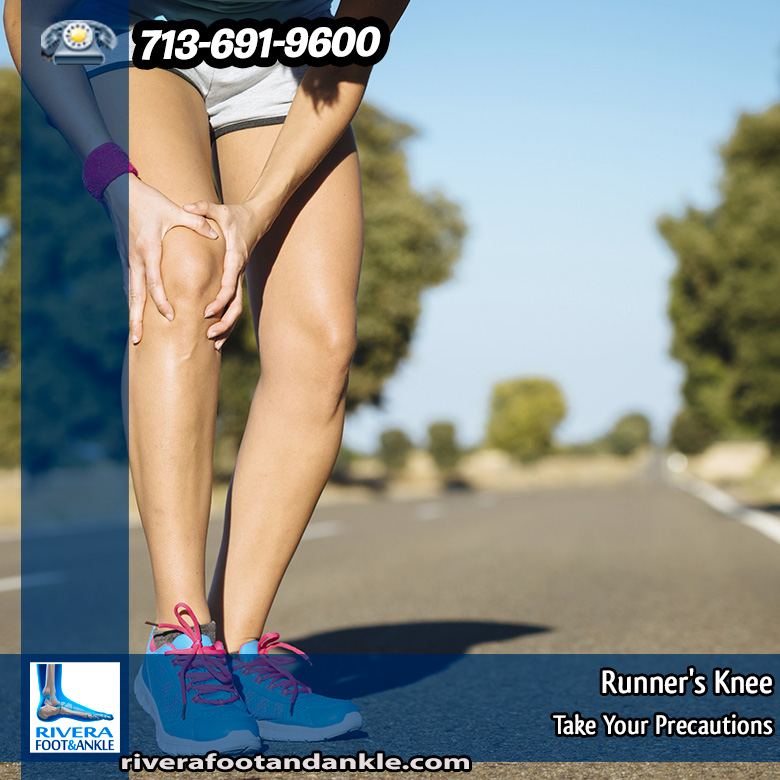
Runner's Knee
Take Your Precautions
What Is Runner's Knee?
Runner's knee is the term doctors use for a number of specific conditions affecting the knee, such as patellofemoral pain syndrome and chondromalacia of the patella, to name just two. It's the most common overuse injury among runners, but it can also strike other athletes who do activities that require a lot of knee bending, such as biking, jumping, or skiing.
Runner's knee happens when the kneecap (patella) tracks incorrectly over a groove in the thighbone (femur) known as the femoral groove when you bend and straighten your knee. In healthy knees, the patella rests in the femoral groove and slides easily up and down when you use your knee. But when the patella is out of place, it can irritate the femoral groove and wear away the cartilage beneath the patella, leading to knee pain.
Symptoms of Runner's Knee
The most common symptom of runner's knee is tenderness or pain behind or on the sides of the patella, usually toward the center or back of the knee where the thighbone and kneecap meet. In addition, the knee might be swollen.
The pain will generally feel worse when bending the knee — when walking, kneeling, squatting, or running, for example. Walking or running downhill or even down a flight of steps also can lead to pain if someone has runner's knee. So can sitting for a long period of time with your knee bent, such as in a movie theater.
In some cases, someone with runner's knee may notice a popping or cracking sensation in the knee, as well as a feeling that the knee may be giving out.
If it goes untreated for a long period of time, runner's knee can damage the cartilage of the knee and hasten the development of arthritis.
Preventing Runner's Knee
The good news about runner's knee is that you can take precautions to protect yourself against it. If you're going to be doing an activity that puts a lot of stress on your knees, follow these tips:
Warm up and stretch before running or doing any other knee-intensive activity, and be sure to stretch again after you're done. Keeping your leg muscles strong and flexible will allow them to support the knee better and make it less likely to be irritated during exercise.
Keep yourself in good shape. The heavier you are, the more weight your knees will have to bear with every step you take. By keeping your weight in check, you can minimize the stress on your knees and decrease the likelihood of pain.
Use proper running gear. Buy a good pair of running shoes that fit your feet and offer plenty of support, and replace them with a new pair when they show signs of wear or the soles start to lose their shape.
If you have flat feet, consider getting shoe inserts or custom-made orthotics.
Try to run on soft, flat surfaces. Concrete and asphalt surfaces create extra stress on your knees. If possible, try to run on grass, dirt, or a synthetic track with a softer surface. Running downhill in a straight line can also cause pain in your knees. Walk down hills or run down them in a zigzag pattern.
Increase the intensity of your workouts slowly. Build up to the distance you want to run over a period of time. If you're used to only running a mile or so, don't try to go out and suddenly run 5 miles. Work up to it with a series of intermediate steps.
If you've had runner's knee before, wearing a knee brace may help.
Source: kidshealth
RIVERA FOOT & ANKLE: At Orlando H.Rivera DPM, our priority is to deliver quality care to informed patients in a comfortable and convenient setting. When you have problems with your feet, you need to turn to a podiatrist who listens and responds… an experienced doctor who knows the field and can effectively diagnose and treat your needs… a friendly physician who counsels you on the best ways to maintain and improve your health. Our physician(s) meet all these criteria. Plus, you benefit from a dedicated team of trained professionals who give you the individualized attention you deserve.

Podiatrist in houston
Keywords: Foot and Ankle, Dr. Orlando Rivera, Advanced Foot & Ankle Specialist, Foot and Ankle Podiatry, Houston Foot & Ankle Surgical, Treatment of Foot and Ankle, Foot & ankle specialists, Podiatrist in houston, podiatrist in houston, Orlando H.Rivera DPM, Houston Foot Doctor, Foot and Ankle Surgeon Houston, Ankle and Foot Specialist Houston, Podiatrist Houston, Foot Pain Houston



